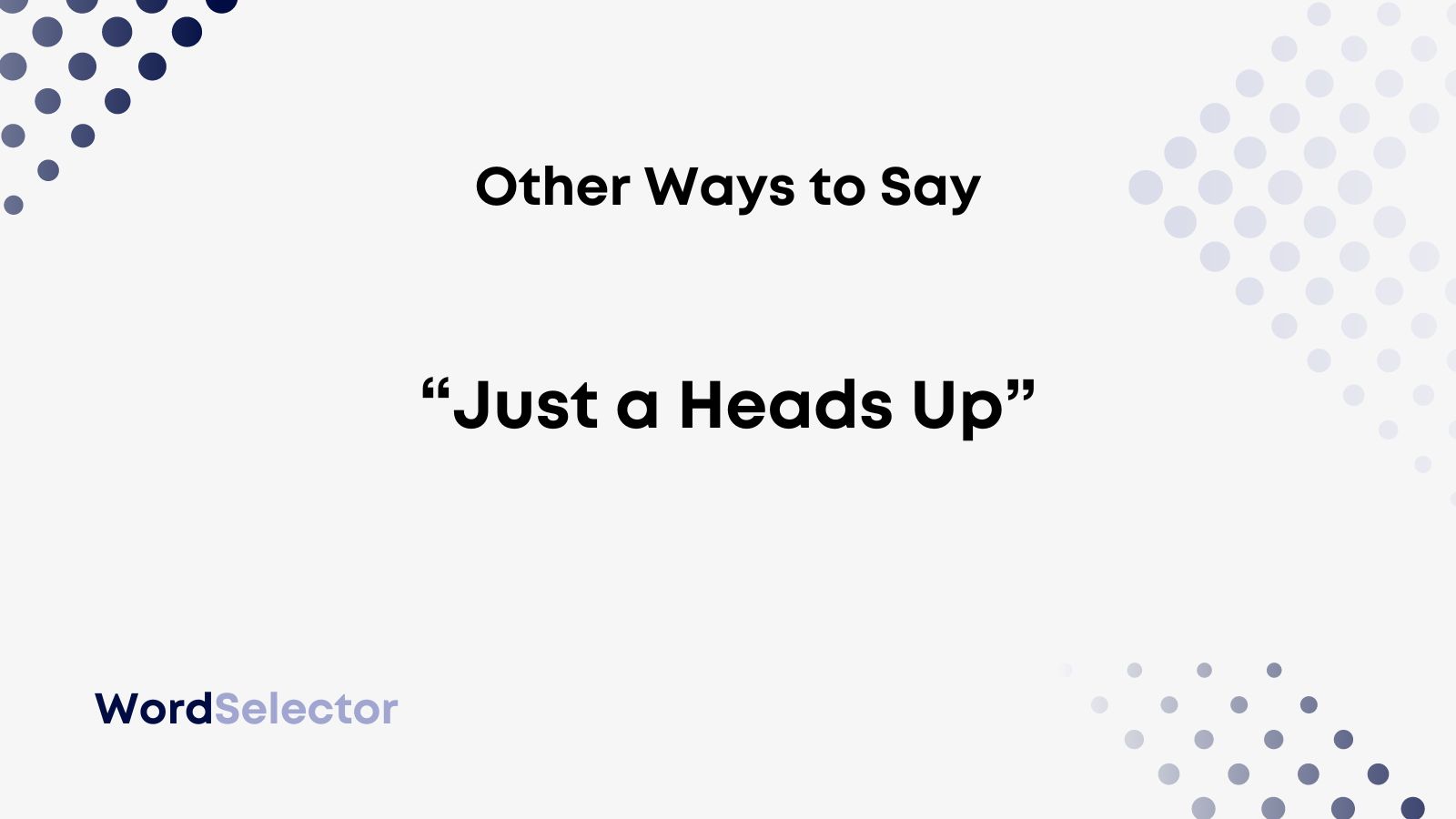So, you’re trying to warn someone at work about something coming up, right? “Just a heads up” seems like a good phrase, but is it the best choice?
Don’t worry. This article will answer that question! We’ll show you how to say “just a heads up” professionally and a few other synonyms that will work well.
Other Ways to Say “Just a Heads Up”
- You should know
- Just to let you know
- Just as a quick note
- I think you need to know
- You need to be warned
- As a warning
- I think it’s good that you know
- I have to tell you something
- Just so you’re aware
- Just so there are no secrets
- I don’t want there to be any secrets
- I have an update for you
KEY TAKEAWAYS
- “Just a heads up” is correct but not formal, so you should avoid it in a formal email.
- “You should know” is a professional way to say “just a heads up” that works well in business settings.
- Try using “just to let you know” as a conversational alternative.
Plenty of useful synonyms for “just a heads up” are available. Keep reading to learn more about the most effective ones in formal and informal writing.
Also, you can find out more about “just a heads up” at the end. We’ve included a section about whether it’s correct to use the phrase in the first place.
You Should Know (Formal)
“You should know” is an excellent formal alternative for “just a heads up.” It shows someone that there is important information they need to know. It’s especially effective if you know they haven’t heard about it yet.
Most people use “you should know” when emailing employees or clients. Basically, if you have an important piece of information to share, “you should know” works well. It shows that there’s a bit of urgency relating to the information, so someone needs to hear it quickly.
It’s great to use this phrase to sound professional. We highly recommend it over “just a heads up.” Your business emails will sound much more respectful if you use “you should know” to give someone information.
Here’s a quick email example to show you how to use it:
Dear Darren,
You should know that we’ve already decided to take this in another direction. Thank you for your contribution, though.
All the best,
Joanna
Just to Let You Know (Informal)
“Just to let you know” is a good informal choice. Most of the time, it’s used in friendly written cases to show that someone might need to know something.
“Just to” makes this phrase more conversational. That phrase can cause issues formally, so avoid using it when you want to sound professional.
Instead, try using it when writing to colleagues you’re close to. It lets them know some information without sounding too important or problematic. “Just” takes away from the sincerity of your delivery.
However, you should avoid using “just to let you know” in formal emails. Similar to “just a heads up,” it does not work well when you want to sound confident and respectful.
Check out these examples to see how you might use it in a text or informal situation:
Alright, just to let you know, I think you were doing okay. You didn’t have to panic at the end.
Just to let you know, I’m going to be late today. I can’t get the time off work.
Is It Correct to Say “Just a Heads Up”?
“Just a heads up” is grammatically correct but informal. There are no situations where you should use “just a heads up” in formal emails or writing.
You can use phrases like “just a heads up” when warning friends or close colleagues. However, you should avoid using it when trying to sound professional.
Adding “just” to any phrase like “just a heads up” makes it more conversational. It shows that you have had a passing thought and would like to share it with someone. It doesn’t come across as a very confident phrase, which is what you should aim for in formal writing.
You can use “heads up” or “heads-up,” where the hyphen comes between the two words. The hyphenated form is not as common, but it is still correct.
- Just a heads up, I think you’ll want to hear this.
- Just a heads-up, but I don’t know what to do next.
People generally hyphenate the words because of how you say them aloud. When you say “just a heads up,” “heads” and “up” tend to come out as one quick word, which is why some prefer the hyphenated form.
You should bookmark this page just in case you need to come back one day! You never know when some of the synonyms might come in handy again.

